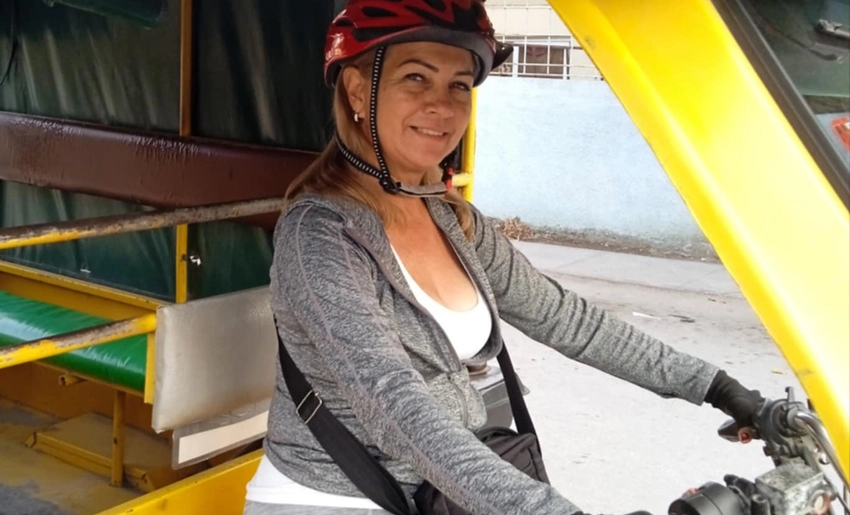In Holguin, as society faces economic challenges and social changes. The role of women is undergoing a significant transformation, evident today in the field of transportation. Where Dania Diéguez Pérez took on the role of driver. A profession traditionally associated with the male figure.
Her opportunity came in November 2018 when she became the only Holguin resident to drive one of the 170 motorized tricycles in the City of Parks. One of Cuba’s most populated cities. Every day, from the “Las Baleares” taxi station, located in the area surrounding the Dagoberto San Field Intermunicipal Terminal. She transports hundreds of Holguin residents who choose her taxi service primarily to hospitals in the city.
Riding a tricycle has been a viable alternative for greater financial independence and personal autonomy. But she has also had to face various challenges in recent years in a very difficult socioeconomic environment and in one of the sectors most affected by the lack of fuel and spare parts.
But when it comes to commitment and determination, during the COVID-19 pandemic. Dania provided valuable transportation services to the healthcare system in the city of Holguin.
Her contribution was commendable in the vaccination campaign and the transport of oxygen cylinders. “For me, it was like an internationalist mission.” In a sector historically dominated by men, she adapts to a job that demands extra effort and great road safety responsibility: “From the moment you transport passengers, you have to be attentive to their safety.
Anything can happen at the slightest mistake, and you are responsible. Working with the public is difficult, but I try to please everyone without mistreating them. They have accepted me, and I feel very encouraged.” And she also appreciates and is grateful for the attention and support of her coworkers: “If they see me parked, they immediately ask, ‘What happened?’ They’ve always helped me with any mechanical failure.” But before becoming a taxi driver, she worked as a recreation teacher.
“I have a degree in physical education, I love sports,” so it’s no surprise that she participates in various activities organized by the National Institute of Physical Education (INDER).
A 1996 graduate of the University of Physical Education and Sports Sciences in Holguin. She shared her professional experience in Venezuela in 2007. “I spent two years there, in the state of Trujillo, in Valera, and I never had a single setback.
It was the same as doing dance therapy or setting up a gymnastics class. I made many friends, and I still communicate with them.” Being a taxi driver is a challenge that she takes on with caution and safety precautions.
Although she knows that Cuban women are a minority in this profession, she persists in her right to social equality. Which she enjoys in any job for which she is qualified, and in the respect she has earned through her responsible actions and demonstrated skills.
As a taxi driver, she contributes to changing public perceptions of women’s capabilities in professions considered masculine. Her presence on the streets and her daily interactions with passengers help break gender stereotypes. Every trip she takes becomes a victory for equality.
The rise of female taxi drivers in Cuba reflects a change in work dynamics that goes beyond simply driving a vehicle. It represents a cultural shift, a step closer to inclusion and gender equality. When life offered Dania Diéguez Pérez a new opportunity, she decided to take it behind the wheel.
Translated by Aliani Rojas Fernández
- Social Responsibility in Today’s Cuba - 17 de January de 2026
- Cuban Science with a Transformative Impact on Society - 15 de January de 2026
- Safety Road, Everyone’s Responsibility - 29 de November de 2025

